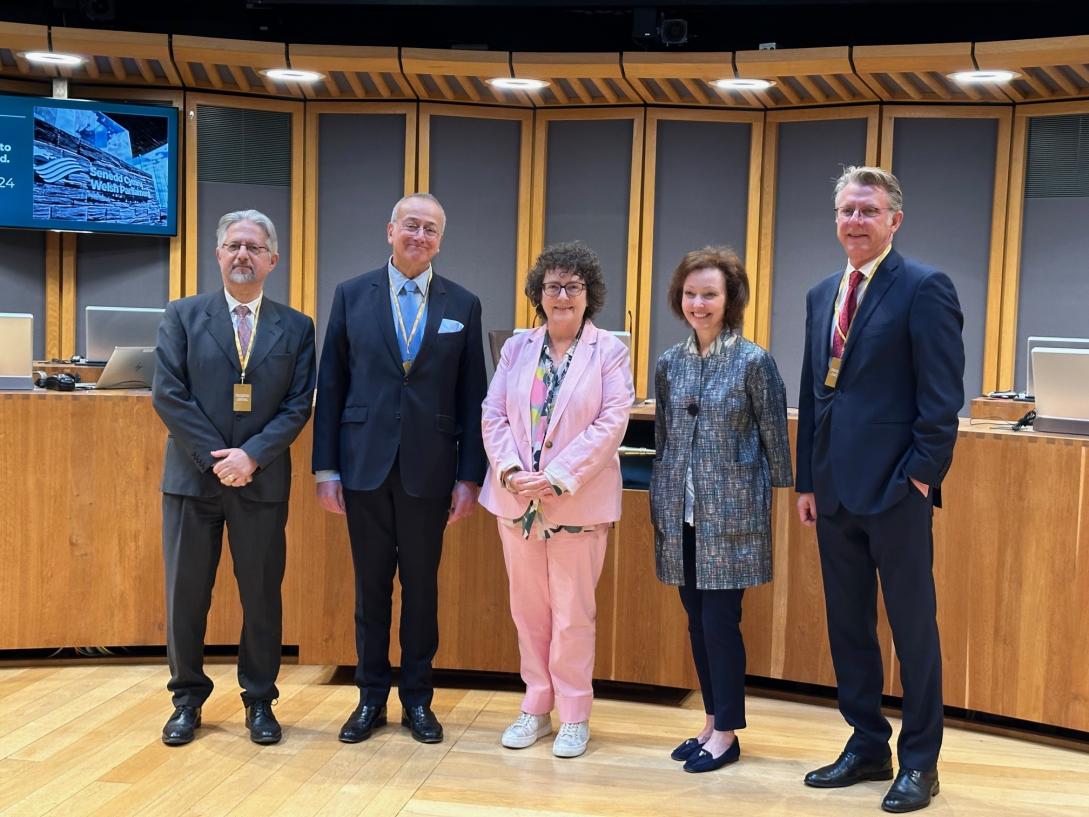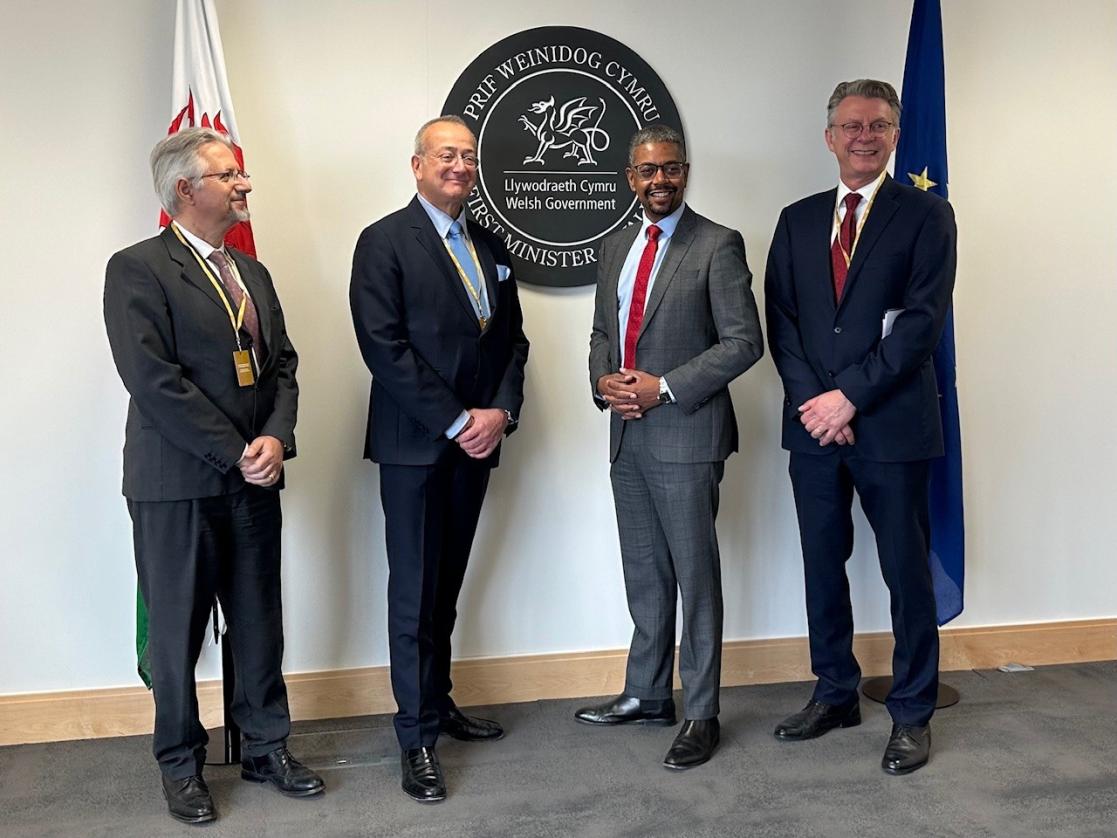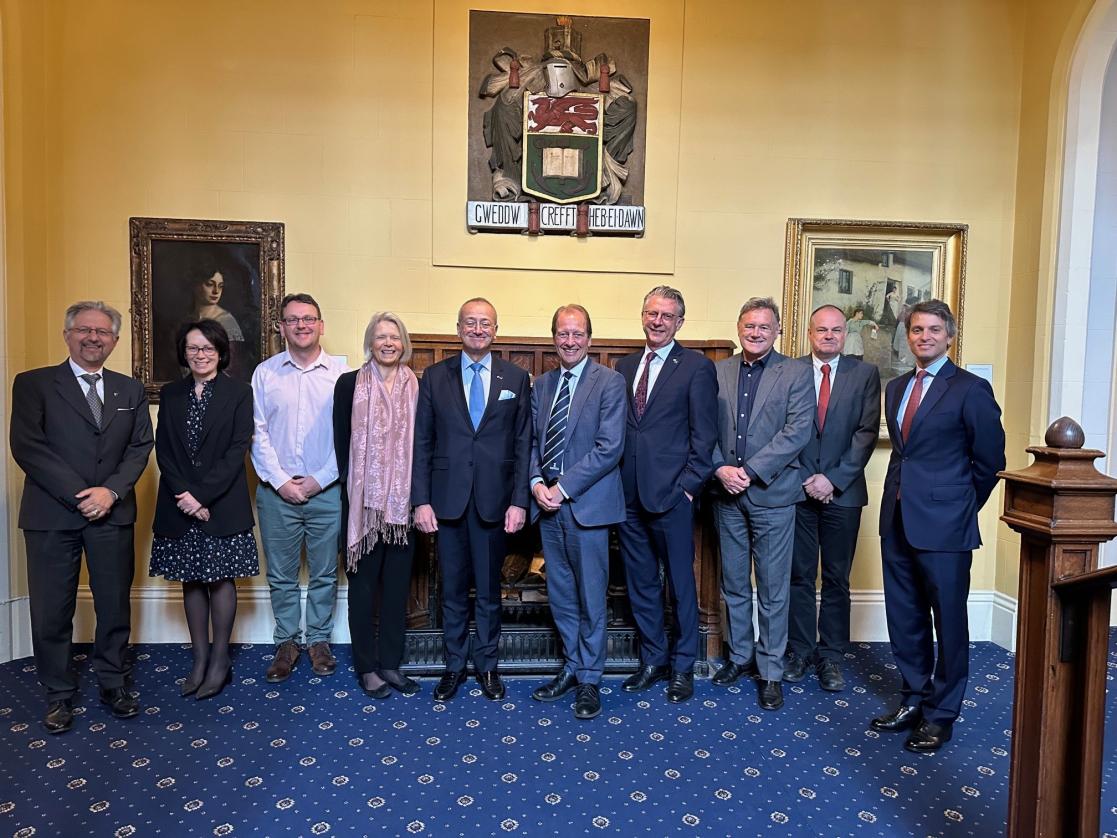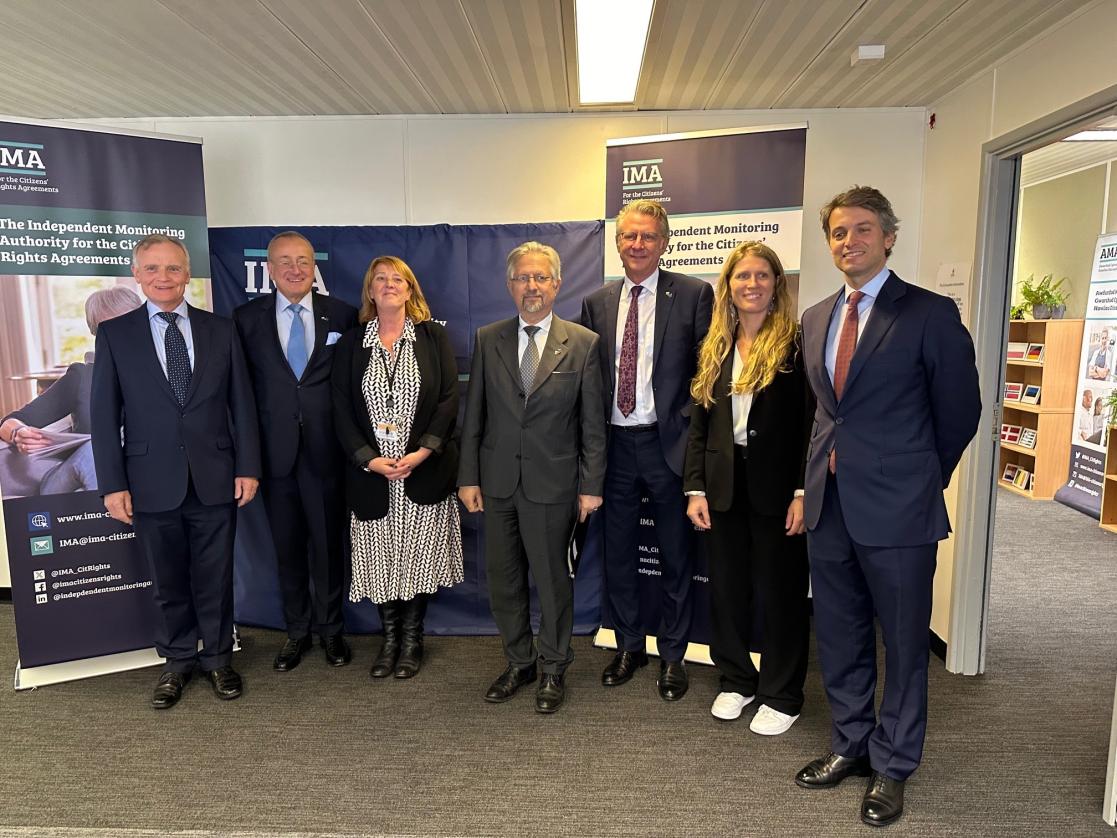EU Ambassador Pedro Serrano visit to Wales

On the first day in Cardiff, the ambassadors met with First Minister Vaughan Gething as well as Cabinet Secretaries Huw Irranca-Davies and Jeremy Miles to discuss the state of play in EU-UK relations, trade, energy and net zero plans, environmental governance, EU citizens and educational exchange programmes. In the Senedd, the ambassadors met Llywydd (Presiding Officer) Elin Jones and learnt about plans to increase its capacity from 60 to 96 members. They had a working lunch with a cross-party group of members including various committee chairs.

EUDEL
On the second day in Swansea, the ambassadors visited Swansea University and met with the Vice-chancellor, Paul Boyle, and the senior leadership team. Swansea University has over 23.000 students and is in the World’s top 300 Universities. They discussed the UK’s association to Horizon Europe as well as well student mobility. The ambassadors also met with Susana Galvan, Chief Executive Taith, Wales’ international educational exchange programme, which has the particularity of funding not only outward mobility but also inward mobility to Wales.

EUDEL
In the afternoon, the ambassadors had a meeting with Kate Smart, CEO of Settled, one of the largest charities supporting EU citizens in the UK affected by Brexit. Ms Smart shared the experience of Settled in assisting EU citizens in the UK, describing in detail the work of the charity and the challenges faced by EU citizens who come through their doors for advice.
The visit in Swansea concluded with the meeting of the Board of the Independent Monitoring Authority (IMA), an independent body which monitors how UK public bodies are protecting the rights of EU citizens and their family members. The ambassadors learned about the work of the IMA and exchanged views on the existing and future issues affecting Withdrawal Agreement beneficiaries in the UK. There was a common understanding that the efforts of support organisations assisting EU citizens in the UK in solving their issues has been invaluable and sufficient funding needs to be in place for these organisations to continue their important work.

EUDEL





